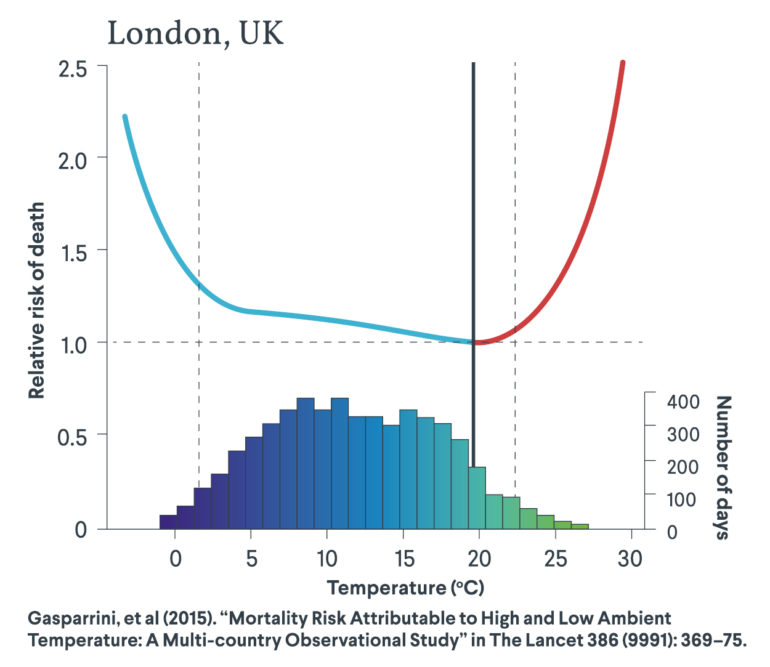In this regular column, Club Vita's longevity experts will help you visualise the often abstract world of longevity risk by introducing their own personal favourite charts.
In this edition Longevity Consultant, Jessica Elkin, explores the implications of rising temperatures for longevity expectations in the UK.
Question:
What does global warming mean for UK life expectancy?
Answer:
An increase in temperatures in the UK could be beneficial for life expectancy, as we’d expect to see cold-related deaths reduce by more than heat-related deaths increase. However, this isn’t the whole story.
The graph below shows the relative risk of death at different temperatures, with the lowest point on the red and blue line showing that the optimum temperature for longevity in London is around 19.5 degrees Celsius. The bars display the actual incidence of these temperatures over a 14-year period, showing that in isolation rises in average temperatures would bring us closer to optimum levels.

However, climate change will impact temperatures both in terms of increasing average temperature and the incidence of extreme temperatures. The UK is not well equipped to deal with extreme heat or cold; dramatic swings in temperature can be fatal for vulnerable people such as the elderly. Global warming could therefore reduce life expectancy even if we move closer to that optimum average level.
It’s also important to remember that climate change relates to a huge range of interconnected effects which will also impact life expectancy, such as extreme weather events, forced migration and greater numbers of disease-spreading insects. To find out more, please see our recent research paper Hot and Bothered? or listen to a recording of our recent webinar.
Key takeaways
- In isolation, rises in temperatures in the UK could actually be beneficial to life expectancy.
- However, greater fluctuations in temperature, with more extremes, could have the opposite effect.
- In addition, temperature changes are not the only result of climate changes. Other effects may have greater impact on life expectancy.
The key question for pension schemes is:
How will the risks affecting life expectancy interact with financial, covenant and other risks?
What do you think?
If you've any comments or questions we'd love to hear from you. Get in touch via our Friends of Club Vita discussion group on LinkedIn.
Top Charts Issue 6: Hot and bothered about climate change?
Download a print friendly version of this article




